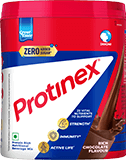
Introduction:
Imagine this. You and your friend enjoy some street food one fine day. You might feel sick the next day but your friend won’t. While the food was the same, it acted differently on you two. Why? Well, the answer lies in your immunity. Your friend has it stronger than you.
Immunity is your body’s ability to resist infections, allergies and autoimmune conditions. Once you experience a germ invasion, your immune system responds to it at the earnest. You are protected only until the immune system works well. Once the guard lowers, you fall ill.
The immune system is a complex system of cells, tissues and organs that work together to ward off disease-causing pathogens. Think Antibodies, White Blood Cells (WBCs), Lymphatic system, Spleen, Bone marrow, and Thymus, all collectively form your natural defence system.
Immunity and Age:
When age catches up, the immunity recedes, leading to frequent infections and even cancers. The incident rate of age related conditions is growing steadily alongside the life expectancy. The real reason for weakened immunity among elderly is yet uncovered. But some attribute it to reduction in production of T cells. Note that, T cells are the first line of defense, responding to germ invasion to protect you. Many also link the drop in immunity to the inability of the bone marrow to produce the stem cells that later graduate into immune system cells.
Whatever the reason be, nutrition and immunity go hand in hand, especially in case of elderly. Protein deficiency is the commonest of all malnutrition types among the matured population. As the appetite decreases with age, elderly tend to eat less in quantity and variety, leading to protein malnutrition. The deficiency depreciates immunity and causes some serious conditions, such as edema, fatty liver, loss of muscle mass, and more. Doctors recommend supplements like Protinex to bridge the protein deficiency and strengthen immunity.
Ways to boost immunity, naturally:
In the wake of the COVID 19 pandemic, the spotlight is on boosting immunity, naturally. Thankfully, it’s not that hard to keep your natural defences humming along nicely, provided you are ready to make some changes in your lifestyle. Remember, lifestyle is closely linked to your immunity.
Let’s run you through a few healthy-living strategies to give your immune system an edge.
Sleep and immunity are closely interlinked. A sound night’s sleep contributes to strong natural defences, and vice-versa. Sleep deprivation spikes the production of adrenaline, cortisol and other stress hormones. Note that, stress is the reason for multiple mental and physical disorders. That’s not all, inadequate sleep brings down the cytokine production in the body.
Cytokines are a type of protein linked to the immune response against infections and inflammation. Interestingly, the body produces and releases cytokines only when you are asleep. Plus, the vaccines, particularly those for flu, are rendered less effective due to chronic sleep loss.
What’s your ideal sleep duration? Well, it’s age-specific. Anyone aged 18 to 60 needs 7 to 8 hours of sleep daily, while the same for 60-year-olds ranges from 8 to 9 hours a day. Research indicates that a 7-hour sleep reduces your chances of catching a cold by 4 times compared to a 6 hours sleep. Compensate for interrupted sleep schedules with afternoon naps, if possible.
A regular workout session can rev up your defence activity and metabolism. There’s a consensus that moderate exercise keeps the natural defences in shape to identify and deal with pathogens. The immune cells move freely across the body and do their job effectively. In the long run, exercise safeguards the immune system from age-related changes and helps ward off infections. However, excess of everything is bad, and exercise is no exception.
A growing body of researches suggests that heavy exercises suppress your immune function. Avoiding lengthy gym sessions, marathon running and strenuous exercise regimes make perfect sense. Instead, try bicycling, badminton and other light games. When much of the world is in isolation, practising yoga within the confines of your home is the way to go. Pranayamas and asanas like Matsyendrasana and Uttanasana help keep your immune cells healthy.
Alcohol is a health hazard, pure and simple. It can even harm your immune system irreparably. Excessive liquor intake kills friendly bacteria in your gut microbiome that help fight diseases. (Yes, friendly bacteria do exist.) When that happens, the balance between friendly and harmful bacteria is severely altered. The digestive system also takes a hit, as alcohol wreaks havoc with epithelial cells in the intestines. Lack of these cells impairs your nutrient absorbing capabilities.
Alcohol is detrimental to the function of immune cells in the respiratory tract. This exposes you to pneumonia, tuberculosis, COVID 19 and other respiratory conditions. Liquor damages T Cells, C Cells and macrophages, the three key cells of your immune system. The cells identify and kill anything that’s not supposed to be in your body. Plus, when exposed to liquor, the gut barrier breaks, enabling disease-causing bacteria to pass into the bloodstream and make you sick.
Thousands have lived without love, not one without water. Water is not just indispensable for life but immunity as well. It may not protect you from germs but helps maintain overall health, nonetheless. Dehydration compromises your physical performance, metabolism, concentration levels, and renal and cardiac function. Such complications make you vulnerable to diseases.
Plus, water transports oxygen to cells helping organs function optimally. It aids toxin removal, preventing toxin build up in the body and has positive impact on your immune system. Drink at least 3 litres of water daily to steer clear of dehydration. With age, the body loses the ability to signal thirst. So, the elderly need to drink water at regular intervals, even if they do not feel thirsty. Fluids intake in the form of tea, coffee, fruit juice, soups and more also keeps you hydrated.
We are what we eat. The right foods can keep your immune system fighting fit while the wrong ones damage it beyond repair. The thumb rule is to include variety to ensure a steady supply of essential nutrients, minerals and vitamins. Here’s an insight on what to eat and what to avoid.
1. Probiotics:
Most bacteria are rouge, but some, existentially useful. Ageing, poor diet and certain antibiotics kill good bacteria that fight infection, and aid nutrient absorption and other key biochemical processes. Probiotics is all about gulping down the live strains of friendly bacteria to restore the balance of good and bad bacteria in your intestines and help achieve health and immunity. Your probiotic food options include Yoghurt, Kefir, Idli, Paneer, and supplements like Yakult.
2. Healthy Fats:
Healthy fats, such as omega-3 fatty acids should be a part of your diet for increased immunity. They bring down inflammation and amplify the immune response to foreign bodies. Note that, chronic inflammation acts as an immune suppressant, exposing you to diabetes, heart and other serious condition. Salmon and Chia seeds are a rich source of Omega-3 fatty acids.
3. Vegetables:
On your next visit to the grocery store, fetch some broccoli. It’s your go-to source for certain vitamins, notably A, C and E, along with several minerals, fibre and antioxidants. Together, these nutrients fortify your natural defences and help achieve and maintain good health. Likewise, spinach is also a good choice, coming packed with Vitamin C, beta carotene and multiple antioxidants that help fight diseases. Red bell peppers are the richest source of vitamin C and Beta carotene required for optimal immune function and healthy eyesight and skin.
4. Fruits:
When healthy immunity is a priority, citrus fruits help your cause. Citrus fruits, such as grapefruit, oranges, lemons, and tangerines, supply Vitamin C, which is essential for White Blood Cell (WBC) production. Besides citrus fruits, papaya and kiwi should be part of your diet. Papaya is loaded with vitamin C, Potassium, Folate and Papain. Papain is an enzyme essential for digestion. Kiwi is replete with vitamins like K and C, along with folate and potassium.
5. Spices:
Indians have been using a variety of spices for taste and immunity since antiquity. Garlic is widely used as an immune booster and a natural remedy for fluctuating blood pressure. Likewise, ginger strengthens your immunity while also helps keep nausea and inflammation at bay. Turmeric helps flush out toxins from the body and ensures optimal immune response.
6. Nutritional Supplements
The thumb rule is to include variety to ensure a steady supply of essential nutrients. However, Indian diet often lacks certain essential nutrients, notably proteins. That’s where supplements kick in, supplying nutrients for function, growth, development and immunity. Among all the supplements, Protinex Tasty Chocolate stands out. The supplement has the right blend of all essential macro and micro nutrients that your diet might lack. Just one serving a day 1 with milk helps support your nutritional requirements, and achieve optimal gut integrity and better immunity. Devoid of harmful fats, Protinex Tasty Chocolate helps the body gain lean mass.
The Bottom line:
The immune system is not an organ but a complex system. An integrated approach is required to keep it in shape, which includes the right diet, right workout, right sleep, and more. A few practical lifestyle changes can go a long way in safeguarding you from germ invasion.
